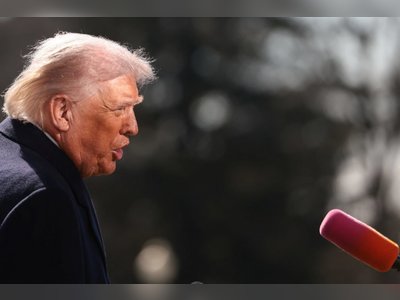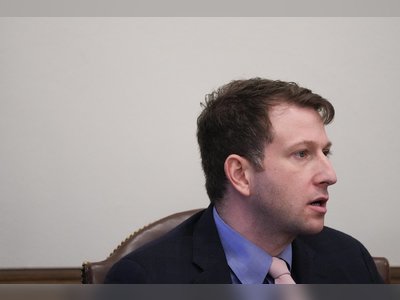Julia Sebutinde to Lead International Court of Justice: A Historic Transition
The Ugandan jurist’s presidency marks another milestone in her illustrious career, as the ICJ navigates key leadership changes amid global challenges.
Judge Julia Sebutinde is set to assume the presidency of the International Court of Justice (ICJ), a move that solidifies her position as a trailblazer in international law.
Her appointment follows the departure of current President Nawaf Salam, who has been tasked with forming Lebanon’s next government, prompting an unexpected transition at the United Nations’ principal judicial body.
A Pioneering Career
Born Julia Semusso in Uganda’s Central Province in February 1954, Sebutinde’s rise to prominence is a testament to her determination and legal acumen.
The daughter of a civil servant and a homemaker, she pursued an education in law, eventually securing a position on Uganda’s Supreme Court in 1996. Her tenure was marked by her leadership in three high-profile anti-corruption investigations, earning her national and international recognition.
Sebutinde’s global reputation grew with her 2005 appointment to the Special Court for Sierra Leone, where she presided over cases stemming from the country’s brutal civil war.
Her role in the trial of former Liberian President Charles Taylor remains a defining moment in her career, highlighting her commitment to justice and accountability in post-conflict societies.
In February 2012, Sebutinde made history as the first African woman elected to the ICJ.
Her election was widely celebrated as a breakthrough for gender and regional representation in international law.
Over the years, she has been instrumental in adjudicating cases involving disputes between states, further cementing her legacy as a key figure in international jurisprudence.
Leadership Transition at the ICJ
Sebutinde’s presidency comes at a critical juncture for the ICJ.
She and Nawaf Salam were both elected to their roles in February 2024, making the rapid leadership change particularly significant.
Salam’s departure to lead Lebanon’s government underscores the interplay between international judicial institutions and national political dynamics.
The United Nations now faces the task of appointing a new judge to fill Salam’s seat and ensure representation for the Asia region on the ICJ bench.
This process highlights the court’s delicate balancing act in maintaining regional diversity and expertise while addressing pressing global legal challenges.
Global Significance and Challenges Ahead
As Sebutinde assumes the presidency, she inherits a docket filled with complex and high-stakes cases.
The ICJ is increasingly called upon to address issues ranging from territorial disputes to human rights violations and environmental conflicts.
Her leadership will be pivotal in navigating the court through these challenges while maintaining its credibility and impartiality.
Sebutinde’s presidency also underscores the importance of diversity in international governance.
Her appointment continues a broader trend of increased representation for women and underrepresented regions in global institutions.
As the first African woman to lead the ICJ, her presidency carries symbolic and practical significance for aspiring jurists worldwide.
A Legacy of Integrity and Impact
Sebutinde’s career reflects her dedication to the rule of law and her ability to bridge local and international legal frameworks.
From her anti-corruption work in Uganda to her contributions at the ICJ, she has consistently demonstrated a commitment to justice and equity.
Her leadership will likely emphasize these values as the court addresses some of the most pressing legal issues of our time.
Regional Implications and International Collaboration
The leadership change at the ICJ coincides with shifting geopolitical dynamics.
As Sebutinde takes the helm, the court’s role in resolving disputes between nations will be under increased scrutiny.
Her experience and perspective as an African jurist bring valuable insights to the ICJ’s deliberations, particularly on issues affecting developing nations and the Global South.
The transition also highlights the interconnectedness of international institutions and domestic politics.
Salam’s departure to lead Lebanon’s government exemplifies how national priorities can influence global governance structures, adding layers of complexity to the ICJ’s operations.
As the United Nations prepares to appoint Salam’s successor, the ICJ stands at a crossroads.
Sebutinde’s presidency offers an opportunity to strengthen the court’s role as a guardian of international law while navigating the evolving challenges of the 21st century.
Her appointment follows the departure of current President Nawaf Salam, who has been tasked with forming Lebanon’s next government, prompting an unexpected transition at the United Nations’ principal judicial body.
A Pioneering Career
Born Julia Semusso in Uganda’s Central Province in February 1954, Sebutinde’s rise to prominence is a testament to her determination and legal acumen.
The daughter of a civil servant and a homemaker, she pursued an education in law, eventually securing a position on Uganda’s Supreme Court in 1996. Her tenure was marked by her leadership in three high-profile anti-corruption investigations, earning her national and international recognition.
Sebutinde’s global reputation grew with her 2005 appointment to the Special Court for Sierra Leone, where she presided over cases stemming from the country’s brutal civil war.
Her role in the trial of former Liberian President Charles Taylor remains a defining moment in her career, highlighting her commitment to justice and accountability in post-conflict societies.
In February 2012, Sebutinde made history as the first African woman elected to the ICJ.
Her election was widely celebrated as a breakthrough for gender and regional representation in international law.
Over the years, she has been instrumental in adjudicating cases involving disputes between states, further cementing her legacy as a key figure in international jurisprudence.
Leadership Transition at the ICJ
Sebutinde’s presidency comes at a critical juncture for the ICJ.
She and Nawaf Salam were both elected to their roles in February 2024, making the rapid leadership change particularly significant.
Salam’s departure to lead Lebanon’s government underscores the interplay between international judicial institutions and national political dynamics.
The United Nations now faces the task of appointing a new judge to fill Salam’s seat and ensure representation for the Asia region on the ICJ bench.
This process highlights the court’s delicate balancing act in maintaining regional diversity and expertise while addressing pressing global legal challenges.
Global Significance and Challenges Ahead
As Sebutinde assumes the presidency, she inherits a docket filled with complex and high-stakes cases.
The ICJ is increasingly called upon to address issues ranging from territorial disputes to human rights violations and environmental conflicts.
Her leadership will be pivotal in navigating the court through these challenges while maintaining its credibility and impartiality.
Sebutinde’s presidency also underscores the importance of diversity in international governance.
Her appointment continues a broader trend of increased representation for women and underrepresented regions in global institutions.
As the first African woman to lead the ICJ, her presidency carries symbolic and practical significance for aspiring jurists worldwide.
A Legacy of Integrity and Impact
Sebutinde’s career reflects her dedication to the rule of law and her ability to bridge local and international legal frameworks.
From her anti-corruption work in Uganda to her contributions at the ICJ, she has consistently demonstrated a commitment to justice and equity.
Her leadership will likely emphasize these values as the court addresses some of the most pressing legal issues of our time.
Regional Implications and International Collaboration
The leadership change at the ICJ coincides with shifting geopolitical dynamics.
As Sebutinde takes the helm, the court’s role in resolving disputes between nations will be under increased scrutiny.
Her experience and perspective as an African jurist bring valuable insights to the ICJ’s deliberations, particularly on issues affecting developing nations and the Global South.
The transition also highlights the interconnectedness of international institutions and domestic politics.
Salam’s departure to lead Lebanon’s government exemplifies how national priorities can influence global governance structures, adding layers of complexity to the ICJ’s operations.
As the United Nations prepares to appoint Salam’s successor, the ICJ stands at a crossroads.
Sebutinde’s presidency offers an opportunity to strengthen the court’s role as a guardian of international law while navigating the evolving challenges of the 21st century.












